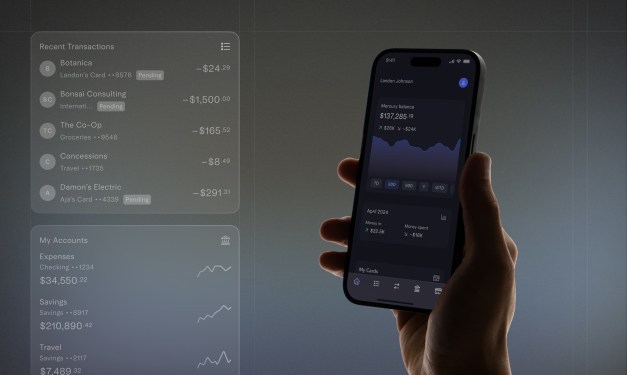From B2B to B2C: Mercury’s New Venture
Business banking startup Mercury has made a significant move by launching its consumer banking product, expanding its services beyond the business sector. Founded in 2017, Mercury already serves over 100,000 businesses, many of which are startups, through its B2B practice.
According to Immad Akhund, co-founder and CEO of Mercury, this expansion was a natural step for the company, which has been working on it for several years. "We already have a few hundred thousand users of our business banking product, and a lot of people have expressed that they want a personal banking product," he said in an interview with TechCrunch.
Why Consumer Banking?
Mercury’s decision to venture into consumer banking is driven by the growing demand for personalized financial services. With more consumers seeking flexibility and convenience in their banking experiences, Mercury aims to capitalize on this trend.
"We believe that our technology and expertise can be applied to provide a better experience for individual customers," Akhund explained. "Our goal is to make banking easier, faster, and more accessible for everyone."
Revenue Streams
Mercury’s revenue model will consist of interchange fees, interest rate spreads, and an annual subscription fee of $240 upon the first deposit, followed by annual renewals thereafter.
The company has seen significant growth in recent years, with a 180% increase in new revenue last year. Customer base and transaction volume have also surged, with a 60% increase in customers and a 90% jump in transaction volume to $95 billion as of January 2024.
Hiring Spree
With its expansion into consumer banking, Mercury has been hiring aggressively, with the company now boasting over 620 employees compared to 440 at the start of 2023.
Growth Milestones
Mercury’s growth milestones include:
- Seven consecutive quarters of cash flow and EBITDA profitability as of March 2024
- A 180% increase in new revenue last year
- A 60% increase in customer base
- A 90% jump in transaction volume to $95 billion as of January 2024
Competition and Market Potential
The consumer banking market is highly competitive, with established players like Chime, Revolut, and N26 vying for market share. However, Mercury’s focus on providing a personalized experience through its technology and expertise may help it differentiate itself from the competition.
According to Akhund, "We believe that our unique approach will allow us to gain traction in the consumer banking market and provide a better experience for individual customers."
Conclusion
Mercury’s expansion into consumer banking marks an exciting new chapter for the company. With its technology and expertise, Mercury is well-positioned to compete in the rapidly growing consumer banking market.
As Akhund noted, "We’re excited about the potential of this new venture and look forward to providing a better experience for individual customers."
About the Author
Mary Ann Azevedo is a senior reporter at TechCrunch, covering fintech and other industry news. With over 20 years of business reporting and editing experience, she has earned numerous awards for breaking news coverage.
Related Stories
- Biden admin snubs Tesla’s $100 million big-rig charging funding request — again
- Sonos CEO Patrick Spence is leaving following bungled app update
Subscribe to TechCrunch
Stay up-to-date with the latest fintech and industry news by subscribing to TechCrunch’s newsletters.



